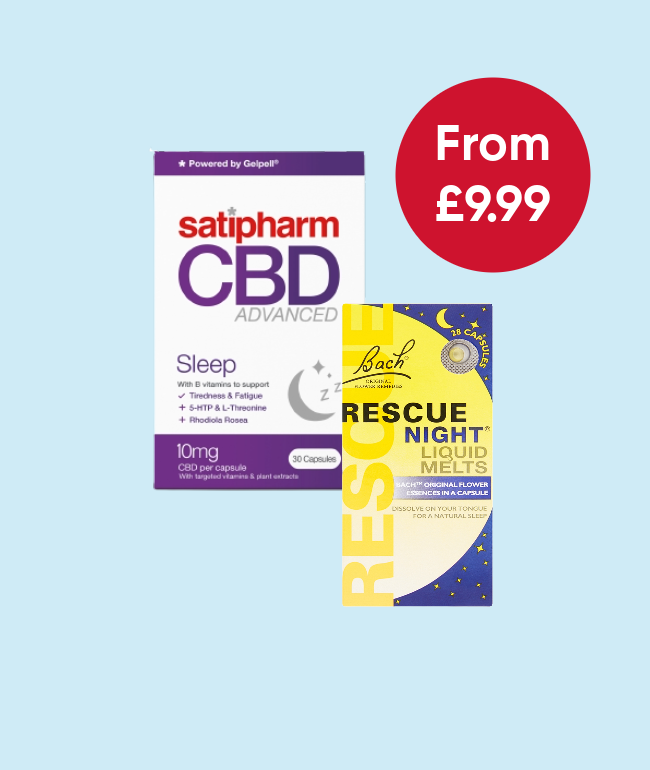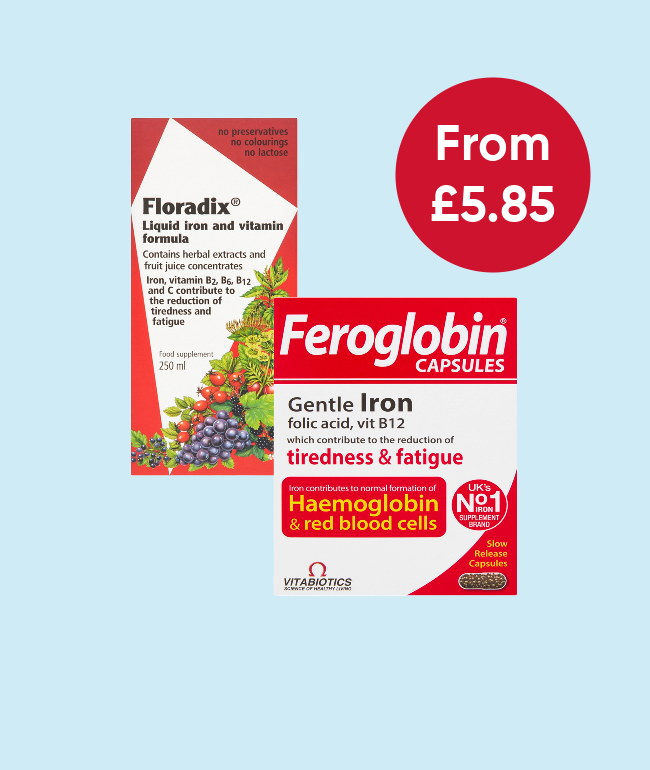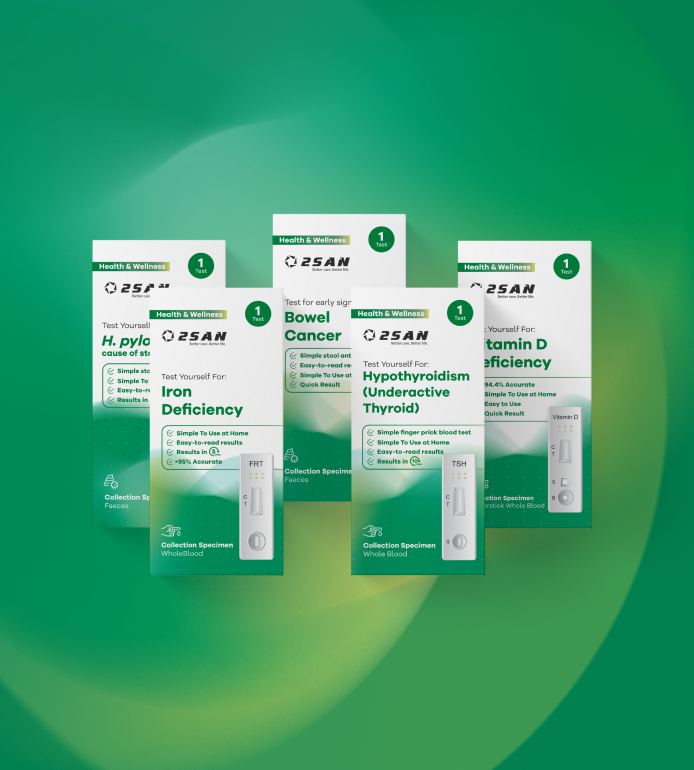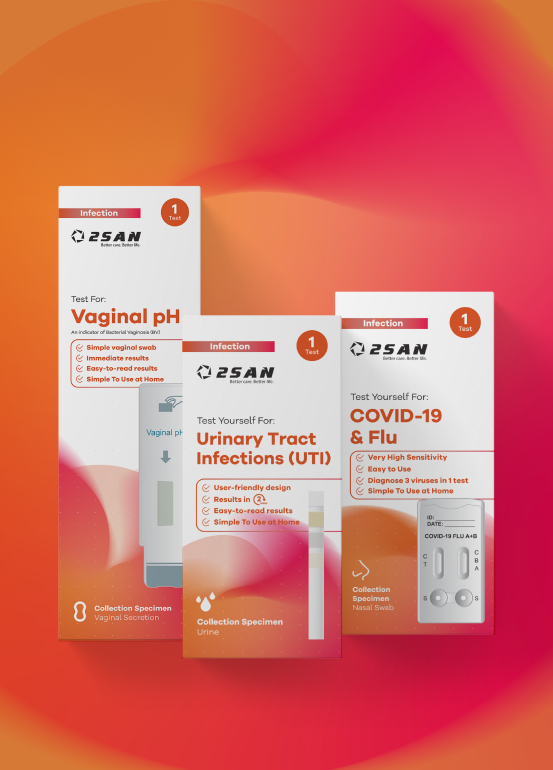
Shop the range
Discover home testing including vitamin D and iron deficiency tests
Shop by vitamin
Vitamins you'll love
Vitamins contain small amounts of vital nutrients we need to make our body healthy. There are 13 different essential vitamins that your body needs to function normally.
Most people can get all the vitamins and minerals they need from a balanced diet, but some people may need to take supplements. These can come in tablet or liquid forms.
Vitamin A helps your immune system work properly and keeps your vision and skin healthy.
There are lots of different types of vitamin B including folate and folic acid, and they do different things. You can get separate vitamin B supplements, like vitamin B9. You can also get supplements with all the vitamin B types you need, which are sometimes called vitamin B complexes.
Vitamin C keeps the cells in your body, your skin, your blood vessels, your bones and your cartilage healthy. It also helps wounds heal properly. If you don’t have enough vitamin C in your body, you can get scurvy. Scurvy causes symptoms like bleeding gums, bruising easily and fatigue.
Vitamin D keeps your bones, muscles and teeth healthy. Children who do not get enough vitamin D can develop rickets. Rickets causes soft and weak bones in children and can affect how their bones grow. Children who have rickets may develop bowed legs that they need surgery to fix. Not getting enough vitamin D can also cause bone pain in adults.
Vitamin E keeps your immune system strong. It also keeps your skin and eyes healthy.
Vitamin K helps your blood clot properly and wounds to heal.
Many people can get all the vitamins they need from food and drinks. However, some people who may need to take additional supplements.
For example:
- Pregnant women should take a folic acid supplement.
- Breastfed babies should be given a vitamin D supplement from birth.
- Children from the ages of 6 months to 5 years old should take vitamins A, C and D.
- People on a vegan diet should take a B12 supplement.
- People with vitamin deficiencies should take the vitamin they are lacking. If you think you have a vitamin deficiency, talk to your GP.
Around 20% of adults in the UK are deficient in vitamin D. This is because it is hard to get enough vitamin D from sunlight from the months of October to March. You may want to supplement vitamin D in these months.
You might also want to take vitamin D supplements if you are indoors a lot. You might consider taking it you work night shifts or live in assisted living, or if you cover most of your skin when you are outside.
People with darker skin may also find it more difficult to absorb enough vitamin D from the sun.
If you think you might have low levels of vitamin D, a home test kit will help you detect and diagnose a deficiency here. You can also talk to your GP or pharmacist if you think you’re deficient in vitamin D.
If you think you have symptoms of a vitamin deficiency, talk to your GP. They can run tests to see what might be causing your symptoms.
Vitamins are absorbed in one of two ways: with water and with fat. If you are taking a water-soluble vitamin like a B vitamin or vitamin C, you can swallow it with a liquid like water.
Vitamins A, D, E and K are fat-soluble vitamins. When you take these supplements, try to take them alongside some food or a drink with fat in it, like a smoothie that contains peanut butter or tea with milk. Some examples of healthy fats in food are avocados, nuts, seeds, eggs and olive oil.
You can take vitamins at any time of day, but many people prefer to take them in the morning.
Vitamins A, B, C, D, and E are the most important for keeping your immune system healthy. If you are not getting enough vitamins from sunlight or the foods you eat, you can try taking a multivitamin.
We need vitamins to keep our hair, skin and nails healthy. Lots of vitamin supplements are marketed as stopping hair loss or greying, but it is not that simple.
There are not any vitamin supplements that will stop your hair from thinning. But if you have male pattern hair loss, or a type of alopecia called telogen effluvium, taking vitamin D may help. If you have low iron, taking iron can also improve your hair loss symptoms. Taking vitamin D can also help with alopecia areata, an autoimmune condition that causes hair loss.
Making sure you get enough iron, vitamin D, folate, vitamin B12 and selenium can also stop your hair from going grey prematurely. This can be through your diet or from supplements.
If you have brittle nails, taking 2.5mg of vitamin B7 every day may help your nails look stronger and shinier.
Women are more likely to have vitamin and mineral deficiencies than men. Women also struggle more on average to get enough vitamins from their diets alone. This means women might be more likely to need supplements.
If you are planning a pregnancy or you have found out you are pregnant, you should take 400mcg of folic acid every day until week 12 of your pregnancy.
You should also take 10mcg of vitamin D every day when you are pregnant or breastfeeding. Talk to your GP or midwife before starting supplements to make sure they’re right for you and your baby.
The NHS recommends all children from 6 months to 5 years old should take vitamins A, C and D every day.
If your baby is breastfed, they should take a vitamin D supplement from birth, even if the breastfeeding parent is already taking one. If your baby is drinking more than 500ml of formula a day, they should not take any vitamin supplements, as formula already has vitamins added.








